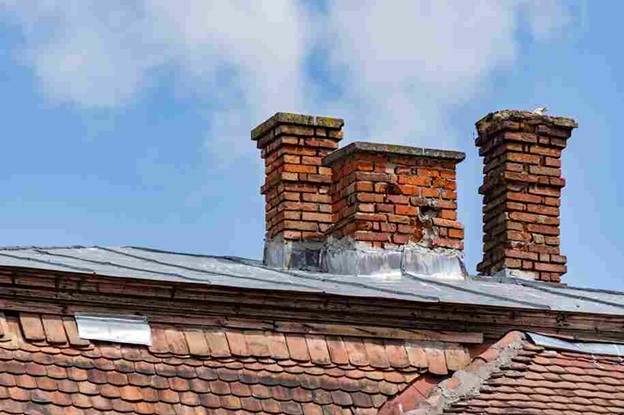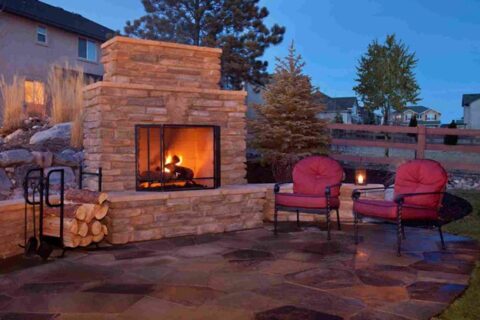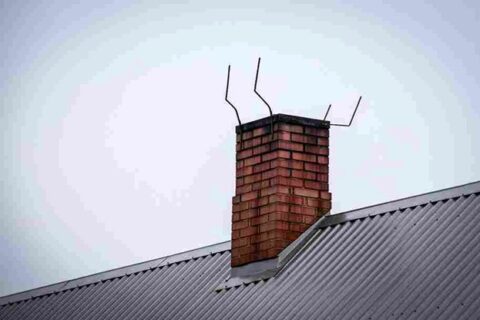Reasons Why Chimneys Have Water Leaks
Dealing with a Leaky Chimney
When homeowners face the issue of a chimney leaking water, it’s not just a minor inconvenience but a significant problem that can lead to extensive and expensive damage if not addressed promptly. The relationship between water and chimneys is fraught with potential issues due to the very nature of chimneys’ exposure to external elements and their structural complexities. Understanding why chimneys leak can help in identifying the problem early and fixing it before it escalates. This article delves into the common reasons behind water leaks in chimneys and the importance of leaky chimney repair.

- Cracked Chimney Crown: The chimney crown is the top element of a chimney, designed to shield the chimney’s brick and mortar from rain and snow. However, because it is exposed to the harshest weather conditions, over time, the crown can develop cracks. Even small cracks can allow a significant amount of water to enter, leading to leaks. This problem is especially prevalent in areas with freeze-thaw cycles, where water seeps into the cracks, freezes, expands, and causes further damage.
- Damaged Chimney Flashing: Flashing is a critical component that seals the gap between the chimney and the roof, which prevents water from entering the space where the roof and chimney intersect. If the flashing is incorrectly installed, corroded, or damaged, it can lead to a leaky chimney. Water can easily penetrate through these compromised areas, especially during heavy rain, leading to leaks that are often mistaken for roof leaks.
- Porous Bricks and Mortar Joints: Bricks and mortar, the primary materials used in chimney construction, are porous and absorb water naturally. In well-maintained chimneys, this isn’t usually a problem as the water evaporates or drains away. However, if the mortar joints are damaged or the bricks become excessively porous over time, water absorption can increase, leading to saturation and eventual leaking. This problem is exacerbated in older chimneys that haven’t been properly maintained or waterproofed.
- Lack of or Damaged Chimney Cap: A chimney cap sits on top of your chimney and acts like an umbrella for your chimney. Its primary role is to prevent rain, snow, and animals from entering the chimney. A missing, damaged, or improperly installed chimney cap can allow a significant amount of water to enter the chimney, especially during heavy rainstorms. This is one of the most straightforward problems to diagnose and fix but is often overlooked until water damage becomes apparent.
- Condensation: With the increasing popularity of gas fireplaces, condensation has become a more common issue. Unlike wood-burning fireplaces that typically generate enough heat to evaporate any moisture inside the chimney, gas fireplaces often operate at lower temperatures. This can lead to condensation buildup within the chimney, especially if it’s not adequately lined or if the lining is damaged. Over time, this moisture can lead to water damage and leaks.
Importance of Leaky Chimney Repair
When it comes to your chimney, water leaking can become a significant problem. Ignoring a leaky chimney can lead to a host of problems, from mildew and mold growth within the home to structural damage to the chimney and the surrounding areas. Water intrusion can deteriorate the chimney structure, leading to crumbling mortar, rusting of metal components, and even damage to the interior of the home, such as water stains and peeling paint or wallpaper.
Preventing Damage Through Routine Chimney Inspection and Repair
Early detection and repair of a leaky chimney are crucial to preventing these issues. Homeowners should regularly inspect their chimneys for signs of leaks, especially after severe weather conditions. This includes looking for dampness around the chimney, water stains, or a musty smell, which could indicate the presence of moisture. Leaky chimney repair should be undertaken by professionals who can accurately diagnose the source of the leak and recommend the appropriate repairs. This may involve sealing cracks in the chimney crown, replacing or repairing the flashing, waterproofing the chimney, repairing or replacing the chimney cap, or addressing any condensation issues.
A Common but Preventable Problem
Water leaks in chimneys are a common but preventable problem. By understanding the common reasons behind chimney leaks, homeowners can take proactive steps to prevent water damage and maintain the structural integrity of their chimneys. Regular inspections and timely repair of any issues are key to ensuring the longevity and safety of your chimney. Remember, when it comes to water and chimneys, prevention is always better than having to make repairs after a leak.
Turn to ChimneyTEK to Prevent Chimney Leaks
Don’t let chimney water leaks dampen your home’s comfort and safety! With over 20 years of expertise, ChimneyTEK, Maryland’s trusted chimney and fireplace experts, provides essential services to protect your home from water damage. Our skilled team, including CSIA-certified Vince DeCrisci, offers thorough chimney inspections, flashing repair, masonry waterproofing, and more to address and prevent leaks effectively. Serving communities in Baltimore, Glen Burnie, and the surrounding areas, we ensure that every chimney is maintained with the highest standards using top-quality products. For expert advice and exceptional service, turn to ChimneyTEK. Keep your home dry and secure, and let us tackle your chimney’s needs! Contact ChimneyTEK online or at 410-684-0127 for an inspection or leak repairs today.


